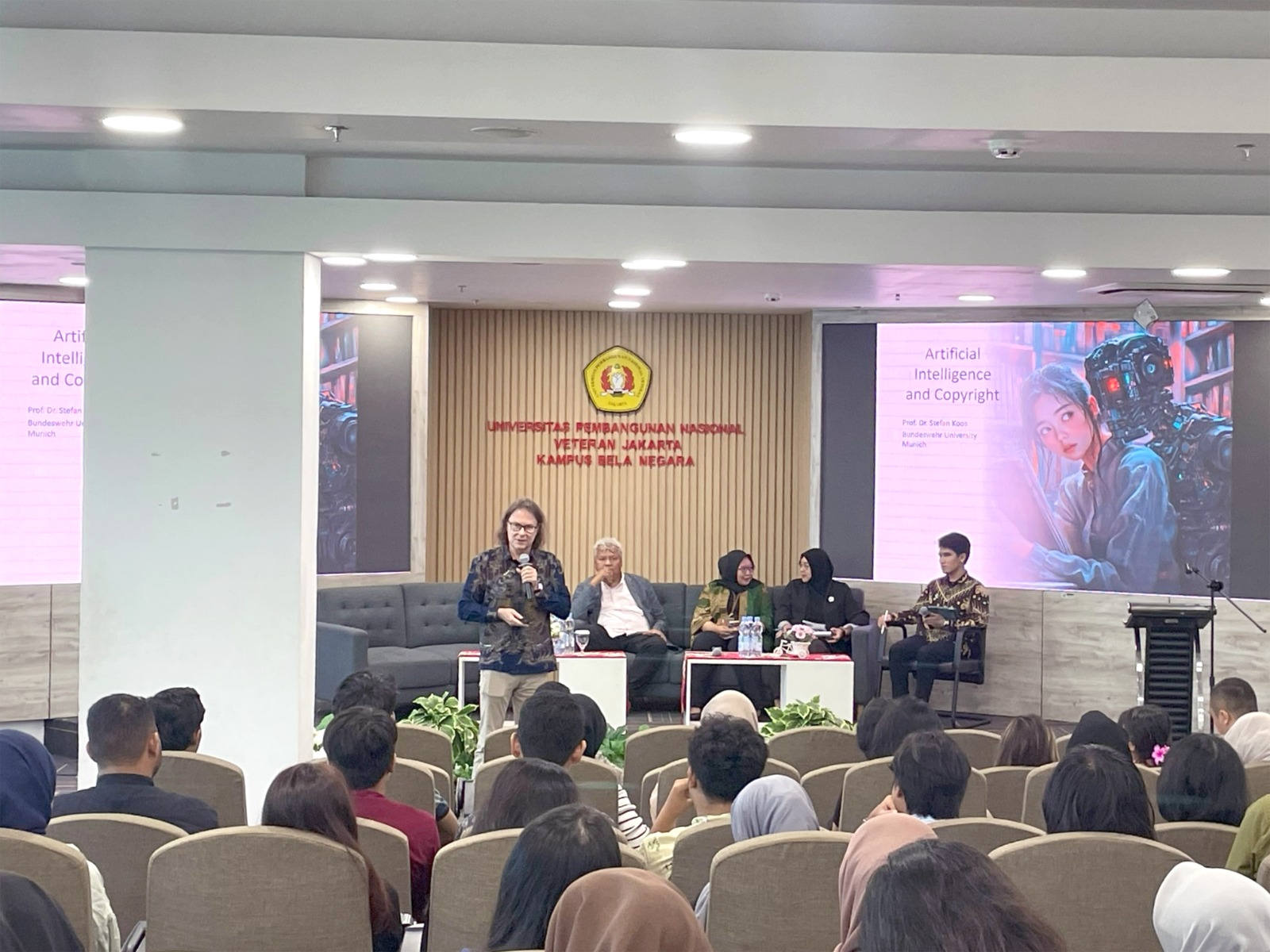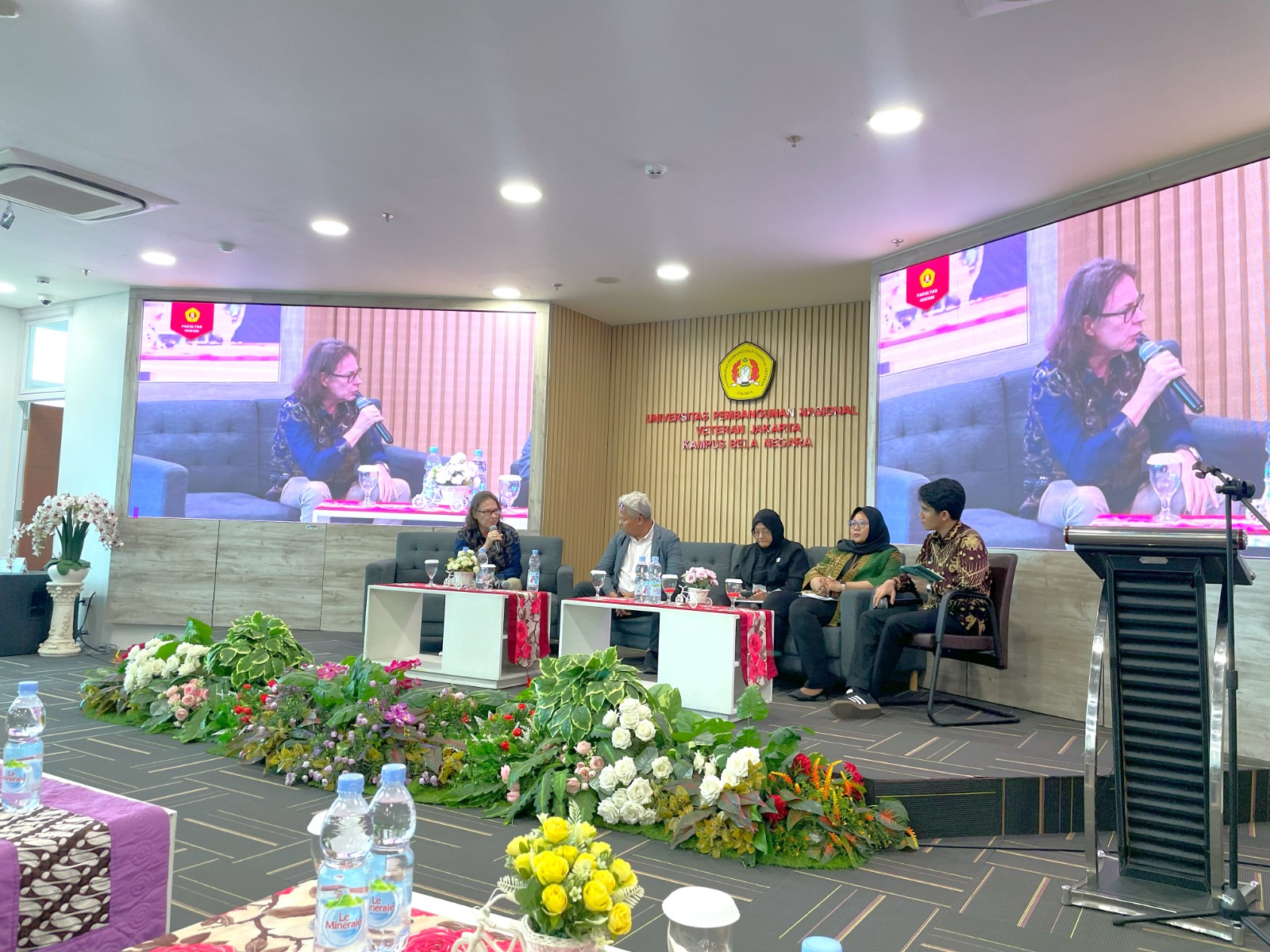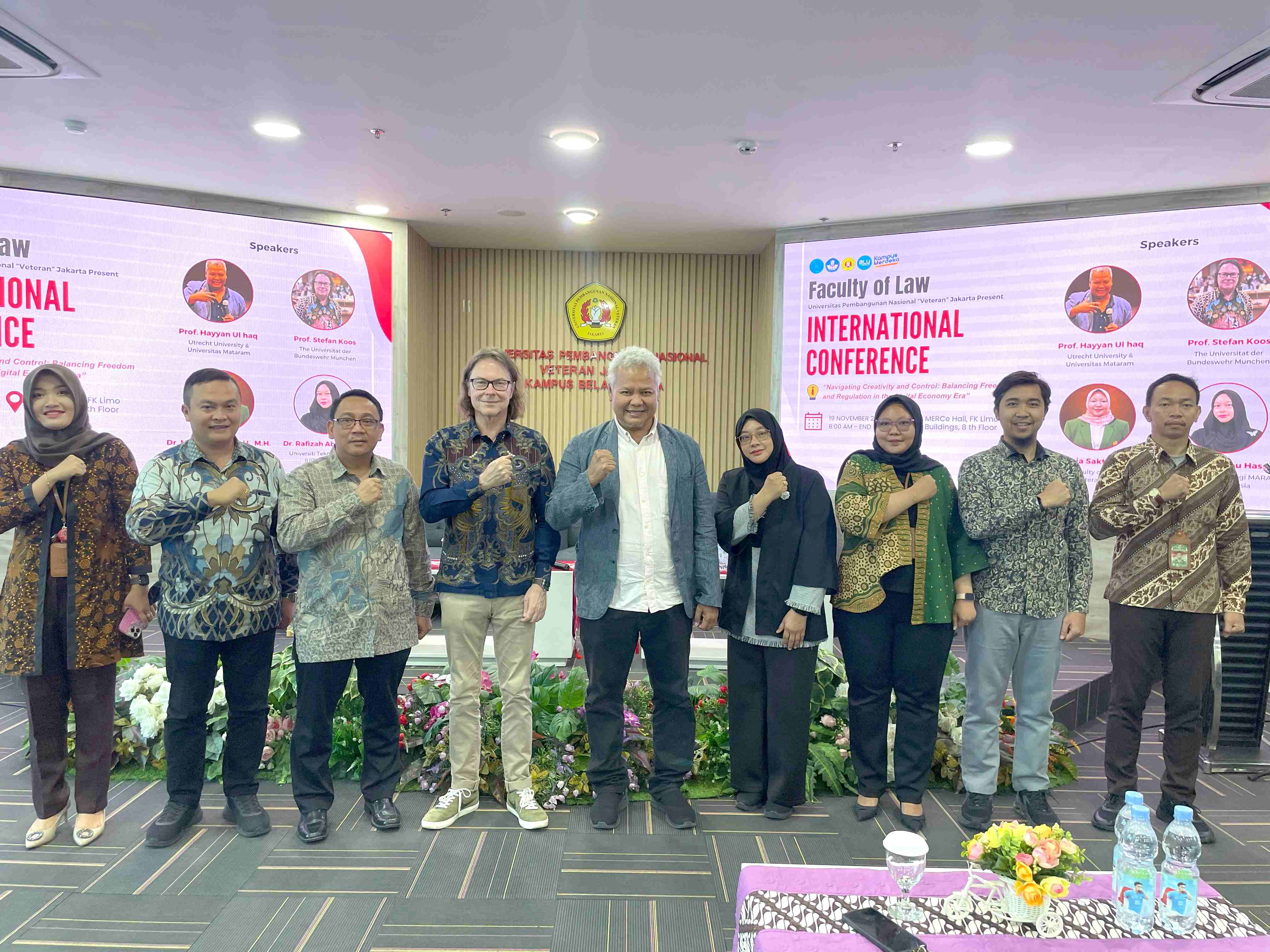Discussing AI and Copyright, Prof. Stefen Koos of Der Bundeswehr University Munich is a Speaker at the International Seminar of the Faculty of Law UPN “Veteran” Jakarta
Jakarta, November 19, 2024 – In the midst of the rapid development of artificial intelligence (AI) technology, the issue of copyright and ethics in data use has become a global concern. To address this challenge, the Faculty of Law of UPN Veteran Jakarta held an international seminar titled “Navigating Creativity and Control: Balancing Freedom and Regulation in the Digital Economy Era”. The event was attended by academics, legal experts, policy makers, and technology industry players.
One of the keynote speakers, Prof. Stefen Koos from Bundeswehr University Munich, Germany, provided an in-depth perspective on two cases that are currently in the global spotlight, namely Sarah Andersen et al. vs Stability AI, MidJourney, and DeviantArt and The New York Times vs OpenAI and Microsoft. In his presentation, Prof. Koos highlighted how AI that relies on large amounts of data often faces ethical and legal dilemmas.
“The real problem is not the AI technology, but the data used to train it,” Prof. Koos explained. He adds that AI algorithms are capable of replicating creative patterns with high precision, thus posing an indirect risk of copyright infringement. “It’s not just about legality, but also ethics. When creative data is used without permission or compensation, it raises big questions about fairness.”
Regulations that Protect, Not Restrict
The seminar also highlighted the need for balanced global regulations to meet the challenges of the digital era. During the discussion, Prof. Koos reminded that technology should not develop at the expense of creators’ rights. “Regulation is not an obstacle to innovation,” he emphasized. “Instead, regulation is a tool to ensure that there is respect for human work while providing space for technology to continue to develop.”
The discussion also addressed the challenges of implementing regulations in different countries, given the different legal approaches. The speakers emphasized the importance of global collaboration to create harmonized standards, especially in the context of the cross-border digital economy.
Learning from Global Cases
One of the key moments in the seminar was the discussion of The New York Times vs OpenAI and Microsoft case, where AI technology produced content that substantially resembled the original article. “The result looks different, but the structure still reflects the original work,” Prof. Koos said. This sparked a lengthy discussion about the line between fair use and copyright infringement.
Meanwhile, the case of Sarah Andersen et al. vs Stability AI, MidJourney, and DeviantArt is an example of how artists were harmed by AI accessing and using their work without permission. This reinforces the urgency of establishing policies that protect creators’ rights.
The Future of Law and Technology Collaboration
At the end of the seminar, participants agreed that a cross-disciplinary approach is needed to address this challenge. The government, academics, technology industry, and civil society need to work together to create a fair digital ecosystem.
“AI is a double-edged sword. If we don’t manage it well, innovation can turn into a threat,” Prof. Koos concluded. This seminar is the first step in building a constructive dialog about the balance between creative freedom and ethical responsibility in the digital era.
This international seminar not only opened up insights, but also sparked wider discussions about the future of AI technology regulation, especially in the creative sector. The Faculty of Law of UPN Veteran Jakarta succeeded in becoming a strategic discussion space to face legal challenges in the evolving digital era.



